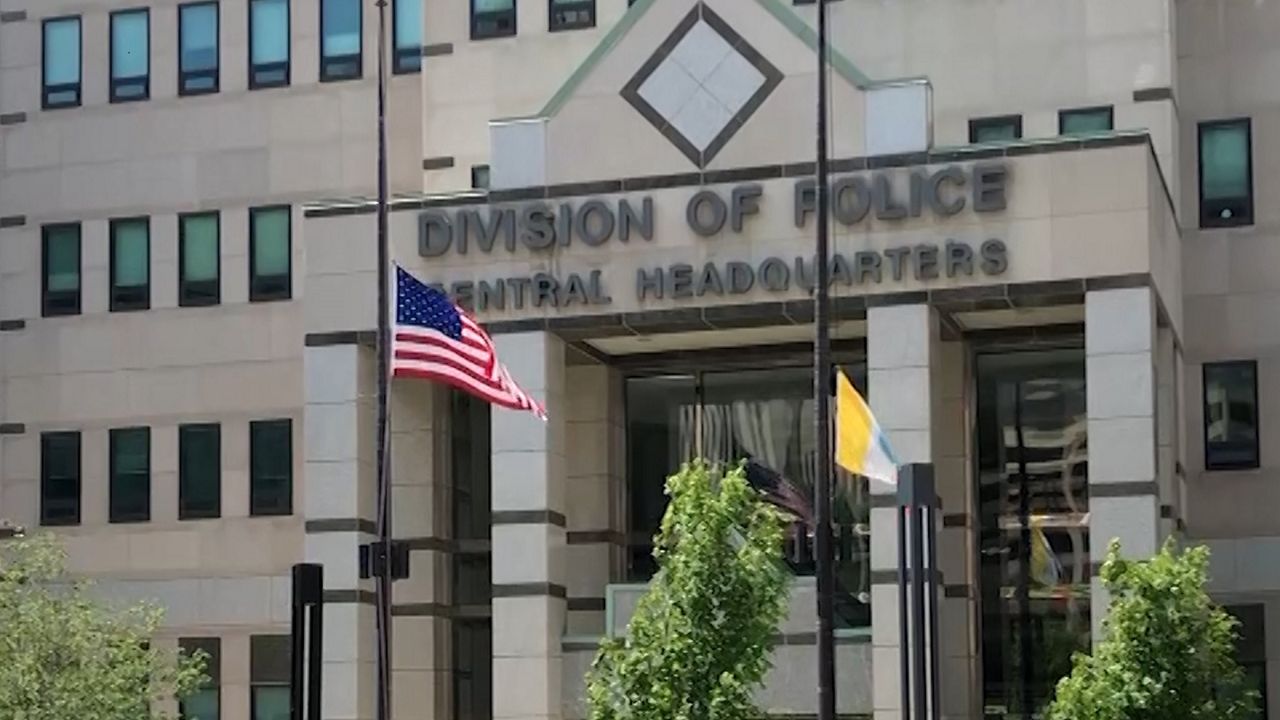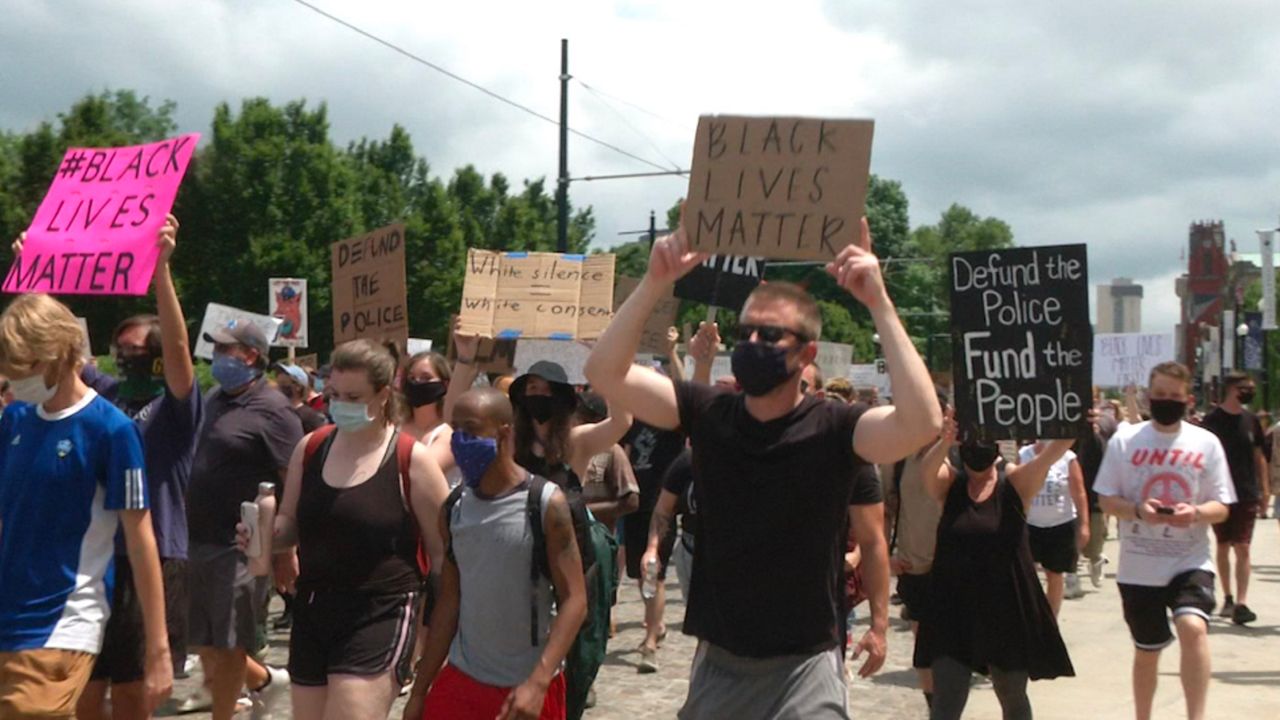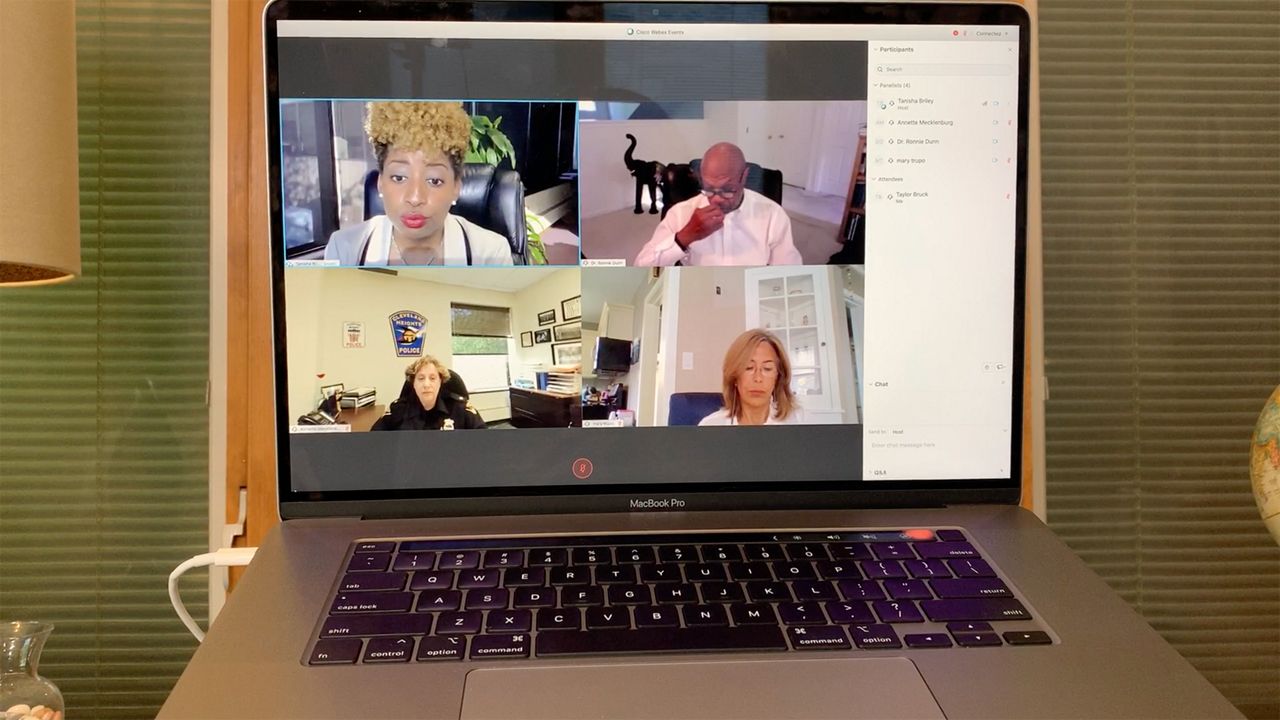CLEVELAND, Ohio — Sgt. Vincent Montague has been a police officer with the Cleveland Division of Police for 12 years, and for him, being a Black man and a member of law enforcement can lead to a feeling of isolation during this time of racial tension and civil unrest.
It is difficult being in the middle and on both sides“We don't have that same bond, like how they say the thin blue line—when you go to work, you don't feel like you're part of that that blue line. So it could be very difficult, especially being a Black officer because you may have empathy for the people that you're protecting in the protests. You may have empathy for them, and other officers may not understand it because they look at them as the enemy. It is difficult being in the middle and on both sides," said Montague, who is also the president of the Black Shield Police Association.
For over a month, people have been protesting police brutality following the death of George Floyd. Montague said it’s time law enforcement officers of all races to hold themselves and each other accountable.
“Seeing George Floyd, that incident that occurred, it's unfortunate. It's tragic, and it hurts me. Because as officers, we defend a lot of our actions, but we don't want to own or accept and have accountability when things may not be right," Montague said.
He and officer Mister Jackson are members of the Black Shield Police Association, an organization formed in 1946 in direct response to the prejudice Black officers faced in the police force. They said the organization gives them much needed mental and emotional support.
“If they have any questions or doubts as far as where you stand, you as a minority officer feel extremely isolated and that’s not only when you're on the job, Jackson said."We also have to deal with the isolation with our own families.”
Jackson said he tries not to get discouraged by tough times but use them as an opportunity to be a bridge between the police community and the Black community. He said it's a relationship strained by years of violence, mistrust and systemic racism.
“We’re in a unique position to see from both perspectives. So before we come to any conclusion, we can look from a law enforcement perspective and say, 'Okay, I can see this,' or from the perspective of being a minority, or Black person myself. I can see it from another side, and in that like I say, having dialogue with both sides.” Jackson said.
There are approximately 1,600 Cleveland police officers and around 360 of them are African American. Montague wants the community he serves to know that he is one of the officers who hears and feels their pain.
“When I hear Black lives matter, I have empathy because my ancestors were slaves. My grandfather told me stories of injustices he faced. My grandmother told me stories of injustices she faced from dealing with the police. So I can understand when they say Black lives matter, because that term didn't just come from today. It was a build up from all these years of not addressing that racism exists.” he said.
He said he will continue pushing for progress even at the cost of being ridiculed.
“So I’m willing to risk everything to save a life. And I’m doing this because I have two boys, 8 and 5, that are African American. And if I don't fight for change for them, 20 years from now, we could be looking at another George Floyd situation."









